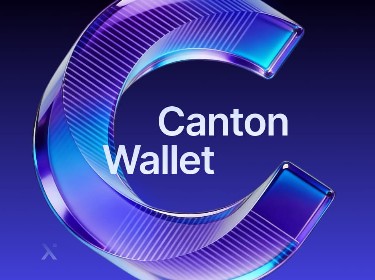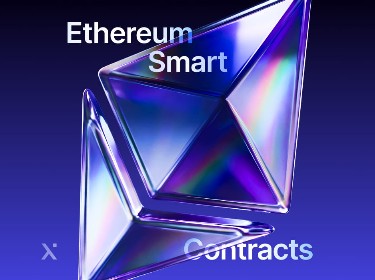Blockchain is welcomed across multiple industries thanks to its many game-changing business benefits. Can the technology be as useful for the energy sector?
The energy industry employs the most robust and reliable technologies to achieve the best efficiency in energy sources exploration, energy generation, and distribution. Thus, it’s no wonder that prominent companies within this industry, such as Shell and Siemens Energy, are keenly exploring the potential applications of blockchain technology.
In fact, It is expected that the global blockchain in energy market size will reach $203.27 billion by 2032.
So what benefits does blockchain offer to the energy industry, what are its practical applications, and which companies have already leveraged the power of this technology?
Read on to find out.
What are the benefits of blockchain in energy sector?
![]()
There are several notable benefits of leveraging blockchain in energy industry, namely:
Better data storage and management
All energy-related data, including energy sources, production processes, distribution specifications, and consumption patterns, can be stored on blockchain, making it easy to access and share with concerned parties 24/7.
Greater transparency
Blockchain cultivates transparency across all the aspects of energy production and distribution. It facilitates the upkeep of trustworthy and unalterable energy databases, transaction history, and supply chain.
Renewable energy certificates and carbon credits can be stored and traded on blockchain as well, making it effortless to verify their origin and make sure they comply with sustainability standards.
Reduced expenses
Leveraging blockchain for energy sector enables both companies and customers to cut down costs. It is possible by eliminating the need for intermediaries and automating billing and payments with the help of smart contracts.
Enhanced security
The tamper-proof nature of blockchain makes it a great option for storing sensitive energy data and protecting it from unauthorized access. Moreover, the decentralized aspect of blockchain platforms adds to their resilience — even if one node is compromised, it doesn’t jeopardize the whole system.
New investment opportunities
Blockchain-based tokenization allows fractional ownership and investment in energy assets, such as solar farms or wind power plants. Tokenized energy assets may appeal to a wider audience, thus securing inflow of investments and increased liquidity of an energy business.
Curious about how AI can enhance efficiency in the energy industry? Discover the details in our article
Overview of blockchain in energy use cases
![]()
There are many exciting blockchain in energy use cases. These include streamlining grid and supply chain management, enabling peer-to-peer energy trading, easing regulatory compliance and auditing processes, providing trackable energy certification, managing carbon credits and offsets, and offering incentives for renewable energy production and usage.
Let’s take a look at each use case in more detail.
Grid management
In conjunction with Internet of Things (IoT) devices, blockchain can gather and document real-time data on energy production and consumption. This provides grid operators with an accurate status of the entire grid and its individual components. Armed with this information, operators can fine-tune the grid’s performance and resilience, thereby preventing blackouts and minimizing downtime.
In addition, blockchain’s cryptographics can provide grids with an additional safety layer, helping to secure transactions and data and prevent tampering.
Peer-to-peer energy trading
Blockchain can allow individuals who generate their own energy from renewable sources like solar panels or hydroelectric generators to sell any excess energy they produce. A reliable smart contract development company can make it possible to bypass traditional utility providers and enable automation of this P2P energy trade, ensuring accurate tracking and settlement of deals.
This can lead to the creation of P2P networks of individual electricity sellers and buyers, offering financial advantages to both parties and promoting environmental sustainability.
Supply chain management
The energy supply chain covers various stages, including exploration of energy sources, energy generation, refining and processing, transportation and storage, and finally, delivery to consumers. Each stage comes with lots of internal processes and involves different specialists and organizations. That’s why it is vital to maintain a high level of traceability across the entire energy supply chain.
Leveraging blockchain in energy industry helps to achieve the desired transparency through the immutability of records. It allows stakeholders to track the origin, movement, and transformation of energy as well as helps verify the authenticity of energy sources and compliance with regulatory requirements.
Smart contracts also allow to omit some of the stages and intermediaries by initiating payments, verifying certifications, or updating inventory levels. This reduces administrative overhead, enhances efficiency, and minimizes the risk of human errors or fraud.
Learn how to enhance your supply chain with predictive analytics
Regulatory compliance and audit
The use of blockchain for managing energy data allows for streamlined auditing processes by providing clear and verifiable data on energy flows, carbon emissions, and other relevant metrics. This significantly eases compliance procedures and minimizes the risk of non-compliance.
Additionally, blockchain enables real-time monitoring of regulatory compliance, making any infringements instantly noticeable.
Energy certification, carbon credit, and carbon offsetting
Blockchain in energy can enhance transparency of energy certification with the help of tokenization. When each energy unit is represented as a token on the blockchain, it simplifies tracking the amount of renewable energy produced and consumed, as well as identifying the involved parties. As a result, tokenized energy certificates streamline provenance verification and reduce fraud and double-counting.
Carbon credits and offsets can also be tokenized, ensuring their authenticity and preventing duplication or forgery. The tokenization of carbon credits facilitates compliance with sustainability standards and reinforces the credibility of carbon offsetting projects.
Renewable energy incentives
Renewable energy initiatives may gain wider attention if incorporating token-based incentive mechanisms for their green energy supporters and consumers. This way, each person buying energy from such an initiative will get a special token which may additionally provide some cool benefits, such as discounts, real-life or online event invitations, etc.
Governments can also use such tokens as rewards for sustainable energy businesses, recognizing and encouraging their contribution to renewable energy generation.
Meet Circularr, a blockchain-powered recycling solution that lets users earn token rewards
3 real-life examples of using blockchain in the energy industry
Many of the industry leaders have already recognized the innovations of blockchain for energy sector and started implementing the technology in their processes.
Let’s explore how renowned energy companies like Shell, ACCIONA Energía, and Siemens Energy are leveraging blockchain to their benefit.
Shell
Shell, one of the world’s biggest oil and gas companies, has created a blockchain-based equipment passport system. With it, a piece of equipment gets a digital ID which stores all information about it and records any occurring alterations. This immutable passport serves as a single source of truth throughout the equipment life cycle and provides access to relevant data for all parties involved.
This allows Shell to perform predictive analytics and maintenance, enhance workplace safety, and improve overall energy generation efficiency.
Shell also leverages blockchain to reduce the environmental impact of aviation fuel. Together with the Accenture and Amex GBT companies, Shell has launched Avelia, one of the world’s first blockchain-powered digital book-and-claim solutions for popularizing sustainable aviation fuel (SAF).
Avelia makes it possible to track the Shell’s SAF supply by documenting the whole journey of the fuel, from its production to distribution. This way customers can rest assured that the fuel is indeed sustainably generated and complies with industry regulations.
ACCIONA Energía
ACCIONA Energía, a company delivering renewable energy solutions, has partnered with IKEA to provide the furniture giant with electric vehicle charging points for its Spanish shopping centers. The charging points will be supplied with certified 100% renewable energy, traced with the help of ACCIONA’s Greenchain blockchain.
The platform registers each generated kWh, a plant that produced it, and provides real-time consumption levels to the client. By the end of 2023, ACCIONA plans to install 475 stations out of 567 slots agreed upon.
Siemens Energy
Siemens Energy, a company focused on producing cutting-edge equipment for the energy industry, issues blockchain-recorded Green Energy Certificates. These certificates function as tokens with all relevant indicators saved as its metadata: asset type, associated CO2 emissions, localization, and timecodes. This way all stakeholders, from suppliers and partners to customers, can check the origin of the energy and all the necessary information related to it.
What to consider when creating a blockchain-based energy solution
Before getting into oil and gas software development or incorporating the technology into an already existing energy project, we recommend considering the following aspects:
- Business objective — you should clearly define the purpose of leveraging blockchain for your exact project. Identify what specific issues you want to tackle or what improvements need to be made.
- Scalability — depending on a use case, your blockchain in energy solution will require different levels of scalability. You need to evaluate how many people may be engaged in the solution simultaneously and what number of transactions it will need to process.
There are multiple blockchains, each suitable for different operational requirements, so it is better to seek professional advice from blockchain consultants when selecting the one for your project.
- Security — energy-related data is very sensitive so you need to work out and implement robust data privacy and security measures. Consider ways of enabling encryption techniques, access control mechanisms, and identity management.
- Interoperability — decide whether your solution requires interoperability with existing energy systems, protocols, and standards. If yes, you need to do thorough research to gain reliable and beneficial partnerships and choose the blockchain that allows for high interoperability.
- Regulatory compliance — it is crucial to stay informed about the regulatory and legal obligations in both the energy sector and blockchain technology to ensure compliance.
- Stakeholders — gain support from relevant stakeholders, such as energy producers, consumers, and regulators and engage them into the development process to ensure fruitful collaboration.
- Sustainability — evaluate the environmental impact of your blockchain in energy solution and try to align it with the industry’s sustainability goals.
By taking these aspects into account, you will increase your chances of creating a truly effective blockchain-based energy solution that meets the demand of the market.
Conclusion
Blockchain in energy can maximize the efficiency of the industry by allowing more secure and transparent transactions and cross-party interaction, reduced operational costs, improved data management, and more. The technology also opens new industry opportunities such as peer-to-peer energy trade and decentralized energy certification.
If you’re aiming to lead the competitive edge in the industry, it’s time to harness the transformative potential of blockchain. With 15 years of expertise and a diverse blockchain development portfolio, we can provide tailored solutions that precisely meet your business requirements.
Contact us and let’s discuss the details of your trailblazing project.




